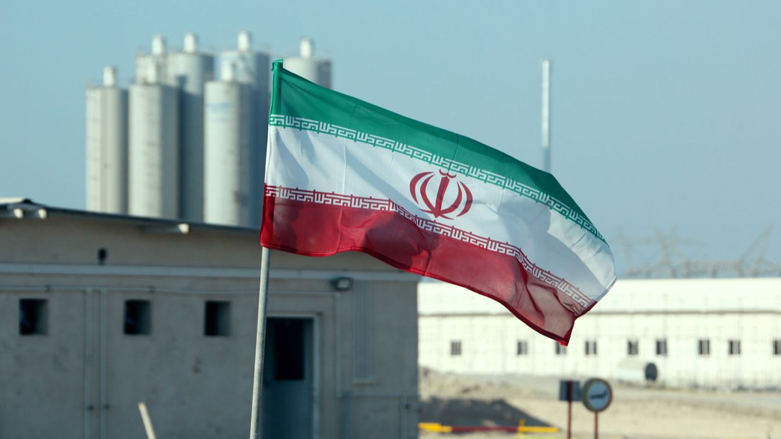US flailing on Iran, as nuclear talks stall again

WASHINGTON DC (Kurdistan24) – On Friday, Iran ended the seventh round of talks on restoring the 2015 nuclear accord, formally known as the Joint Comprehensive Plan of Action (JCPOA). Little tangible progress had been made over the past week.
The Biden administration has responded with expressions of frustration and disappointment, but it has failed to articulate—at least publicly—any change in policy. That is so, even as no date has been announced for the resumption of talks, while Iran continues to violate its own commitments under the JCPOA and to limit the access of nuclear inspectors from the International Atomic Energy Agency (IAEA.)
Perhaps, that could change, as US National Security Adviser Jake Sullivan is visiting Israel this week, and Iran will be a major topic of his talks there. But for now, the US does not really seem to have a way forward in dealing with Iran’s nuclear program.
No Deadline for JCPOA Talks
The Washington press corps is generally sympathetic to the Biden administration and certainly, it is not known for its bellicosity. Journalists’ questions, however, suggest they increasingly doubt the effectiveness of US policy toward Iran.
On Tuesday, one reporter asked Secretary of State Antony Blinken about US statements over “the past weeks” that time was running out to reach an agreement on restoring the JCPOA. But US officials have refrained from articulating any timeframe during which a deal must be concluded.
“Doesn’t that weaken your position to keep saying those things, while not giving a deadline to Iran?,” the reporter asked. Blinken declined to do so, responding, as Biden administration officials repeatedly have, that time was “getting very, very short.”
If JCPOA talks fail, US issues threat of—new Set of Talks!
Speaking to CNN earlier that day, Rob Malley, who is currently the US Special Envoy for Iran and who negotiated the JCPOA under the Obama administration, was a bit more direct—but little more forceful.
Unlike Blinken (Malley’s boss—whose word is more authoritative), Malley did venture something of a deadline, saying there were “some weeks left, but not much more than that.”
And if nothing significant happened in that period, what then? “We’d have to negotiate a wholly new different deal,” Malley said.
Malley might well have threatened Tehran with a wet noodle, although he did continue, “We’d go through a period of escalating crisis.”
The core of the problem, as Malley explained, is that with IAEA monitoring restricted, Tehran’s progress in advancing its nuclear program is so rapid that it might well render the JCPOA moot.
“If they continue at their current pace, we have some weeks left, but not much more than that, at which point, I think, the conclusion will be that there’s no deal to be revived,” he said.
Not on the Agenda: the Threat of Force
On Thursday, a letter was published advising the Biden administration on dealing with Iran’s recalcitrance. The letter was sponsored by Gen. David Petraeus and Leon Panetta. Notably, all the official signatories served in Democratic administrations (President Joe Biden is, of course, a Democrat.)
Petraeus led the “surge” in Iraq under President George W. Bush before becoming head of CENTCOM and later CIA Director under President Barack Obama. Panetta, a long-time Democrat, served as Obama’s CIA Director, preceding Petraeus, and then as Secretary of Defense under Obama, after Bob Gates stepped down.
Gates became Secretary of Defense in 2006, after Bush’s first secretary, Donald Rumsfeld, was obliged to step down for mishandling of the insurgency in Iraq that followed the 2003 overthrow of Saddam Hussein.
Reflecting massive misjudgment, Rumsfeld was slow to recognize the significance of that violence, deriding the insurgents as “dead-enders” and actually forbidding Pentagon analysts from using the term “insurgency”!
Other former officials who signed the letter include Michele Flournoy, a senior Pentagon official under Obama and, earlier, Bill Clinton, as well as Dennis Ross. In his 12 years at the State Department in both Republican and Democratic administrations. Ross’s focus was the Arab-Israeli “peace process,” and Malley worked under Ross in that capacity.
Speaking to journalists on Friday, a senior State Department official was asked about the letter, which called on the Biden administration to “restore Iran’s fear that its current nuclear path will trigger the use of force.”
But he declined to say anything like that. Rather, he responded, “Iran sees very clearly” that there are “two paths in front of them.” One is a return to “strict compliance with the JCPOA, in which case you would see the lifting of sanctions inconsistent” with the JCPOA and “a broadening of economic and diplomatic ties.”
The other choice “is a path of a crisis,” he continued, “a nonproliferation crisis that Iran would have caused that would lead to more diplomatic pressure, more economic isolation, an inability for countries to engage with Iran the way Iran would want them to,” etc.
Thus, it does not seem within the scope of the Biden administration’s thinking that from the perspective of some regimes, what the senior State Department official described is a price worth paying in order to become a nuclear power.
